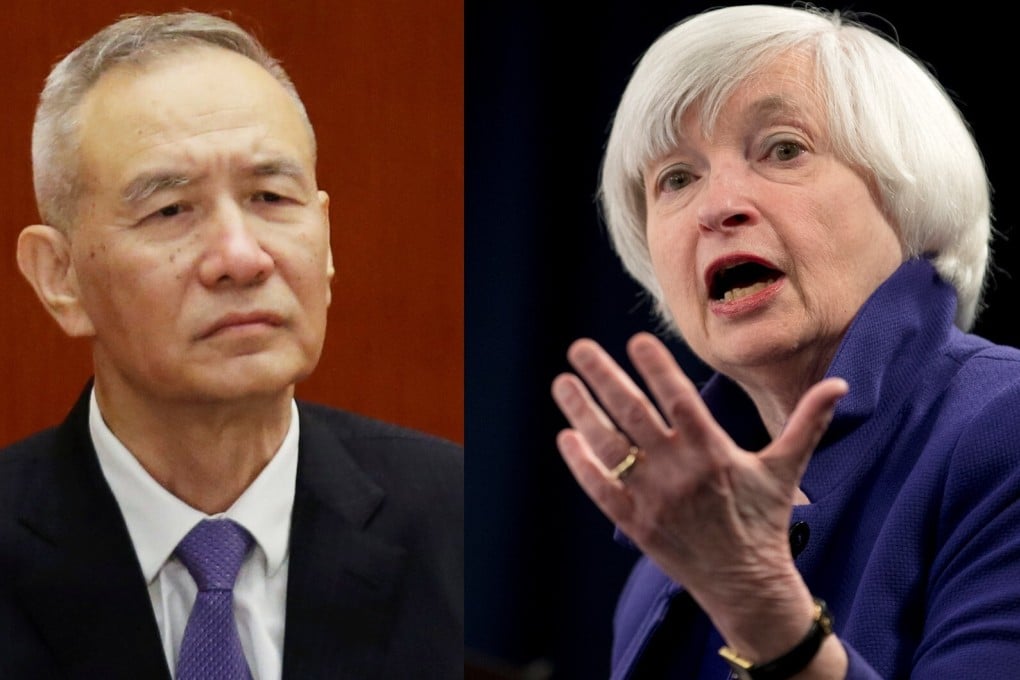China-US relations: economic chiefs Liu He, Janet Yellen in virtual talks
- ‘Candid’ exchange includes discussion of macro economic situation and importance of bilateral relationship, according to Xinhua
- Virtual meeting follows Liu’s first conversation on trade issues with US trade representative

They also had “candid” exchanges on issues of concern and agreed to keep communicating, the statement said.
The US Treasury Department said in a brief statement that Yellen had discussed US plans to “support a continued strong economic recovery and the importance of cooperation on areas that are in US interest”, while at the same time “frankly” talking about issues of concern.
Yellen noted that she looked forward to further discussions with Liu, the statement said.
Taoran Notes, a social media account affiliated with the state-run Economic Daily that is used by Beijing to manage expectations on China-US trade talks, said hours after the latest discussion that “communications between China and the US on economy and trade, which once went silent, have resumed”.